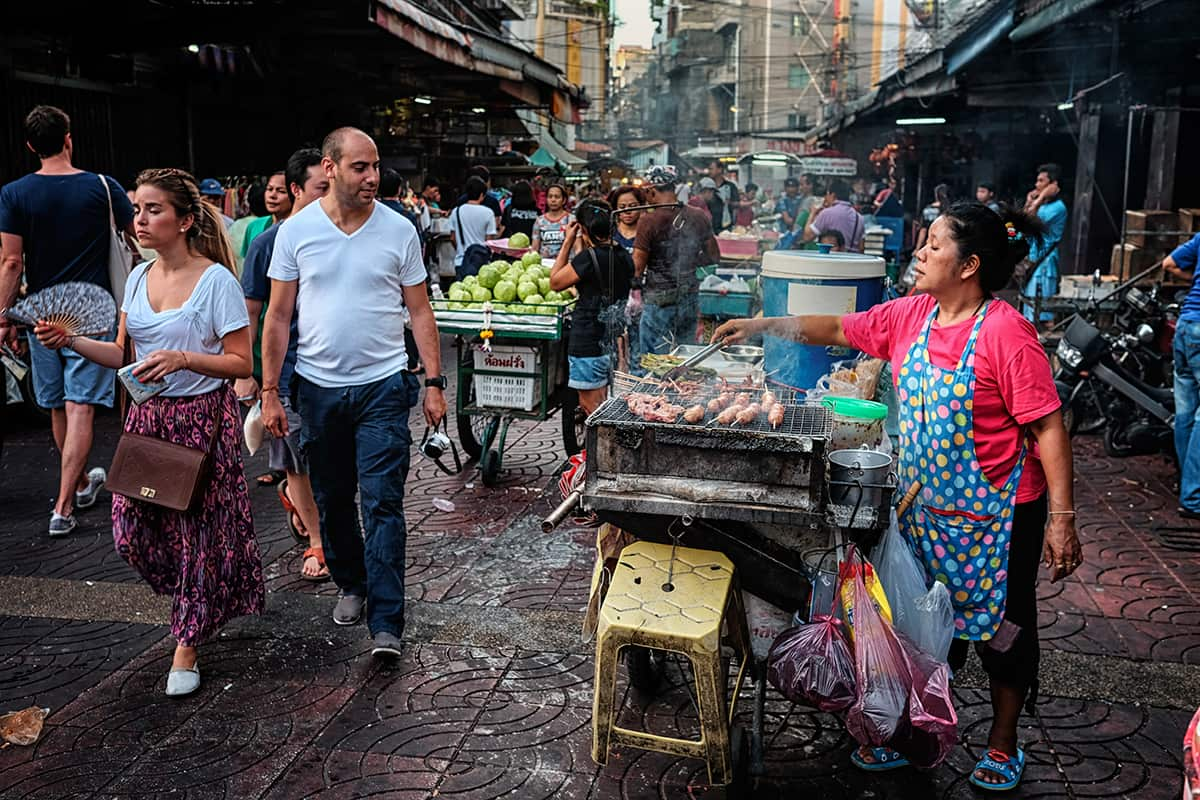When news surfaced back in April that the Bangkok Metropolitan Administration (BMA) was in a bid to clean up the city, the story captured the imagination of the world.
As one of Australia’s most popular tourist destinations, Bangkok is home to some of the world’s best street food. The much-loved vendors line the buzzing streets of Chinatown, Yaowarat and right down Khao San Road from dawn to dusk.
But it’s not just tourists who stand to lose if the laws are enforced; the readily accessible, affordable food is as deeply engrained in Thai culture as it is in that of the city's transient population. “It performs a profound function that is necessary for Thai culture and for Thai people to survive,” says Australian chef and Thai food expert David Thompson.
“It performs a profound function that is necessary for Thai culture and for Thai people to survive,” says Australian chef and Thai food expert David Thompson.

A Thai street vendor prepares food in Chinatown, Bangkok. Chinatown is located in one of the oldest areas of Bangkok (Photo by David Longstreath/LightRocket) Source: Getty Images
“Street food plays a crucial role in feeding Thais who can otherwise ill afford to eat elsewhere. It’s not there for tourists – it’s there for Thai people who need it.”
Thompson, who runs the acclaimed Long Chim restaurants in Melbourne and Sydney and also hosted SBS’s series, says eating is a fundamental part of being Thai.
“I’ve never met such a people who eat so much, who think about food so much – it’s the national pastime, frankly,” Thompson tells SBS. “Whether it’s a stir-fry with a smack of chilli and holy basil and beef or a salad or a dessert – they eat all the time, and having food on the streets means they’re able to do that.”
s travelled to the Thai capital to delve further into what has been dubbed the “beatification of Bangkok” for a Dateline special report Goobey pad thai (watch it now on ). Roberts meets with longtime vendors like Saiyon Panya, who has been preparing one of Thailand’s signature street food dishes, Son Tam, for 20 years.
“They said there was nowhere that selling would be permitted. If you broke the rule, you’d be arrested”, Saiyon tells Dateline.
“These days, we’re all affected. Some people are barred from selling in an area so they go back home to farm. For people who still keep trying to resist, like me, if they evict you, you go elsewhere and still sell food.” Thompson believes that improvements can still be made to the format, but that a blanket ban is not the answer. Bangkok is by nature a chaotic city that’s full of obstacles and assaults on the senses, but Thompson says the food provides a diversion from the maze of umbrellas and broken streets and fills them with people, because Thais “swarm around food”.
Thompson believes that improvements can still be made to the format, but that a blanket ban is not the answer. Bangkok is by nature a chaotic city that’s full of obstacles and assaults on the senses, but Thompson says the food provides a diversion from the maze of umbrellas and broken streets and fills them with people, because Thais “swarm around food”.

Traffic rolls by as a family tucks into dinner at a street food area in Bangkok, Thailand. (Photo credit: Jerry Redfern/LightRocket) Source: Getty Images
“What they should be doing is providing outlets and fresh water and the very things that can improve the standards of the food and make sure the operations are far more hygienic and far more regular. They should be encouraging them to stay on the streets and providing the infrastructure to make sure that the food that is served is even better.”
The chef believes the highly unpopular policy is doomed to fail.
“Given the organic nature of Thai street food, I think it will almost be impossible for any government to prevent people from enjoying their food where and when they wish.”



